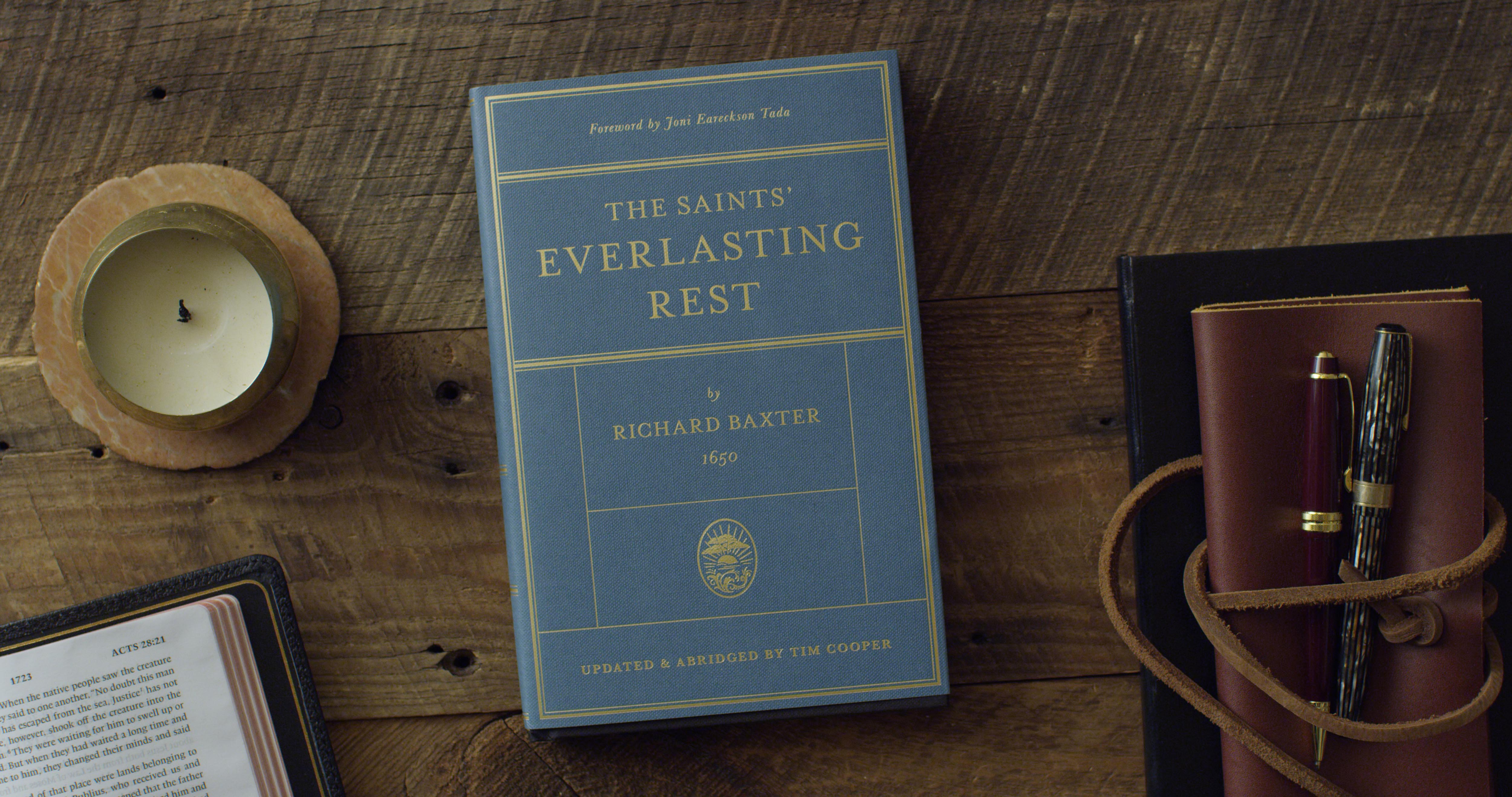
I really want to read that.
That’s how I felt after hearing about The Saints’ Everlasting Rest by Richard Baxter. It’s a book reflecting on Heaven by a man who thinks he’s about to be in Heaven. In his early 30’s, Baxter got a nosebleed, and at the time, doctors believed this was a sign of excess blood "so he opened four veins, followed by another more substantial purge” and “this drastic loss of blood very nearly killed him" (18-19). Meditating on the joy that awaited him in Heaven, he composed his funeral sermon, but then lived for another forty-five years (19)! He continued to think and write, and his work became the classic Puritan book: The Saints’ Everlasting Rest (19). Recently, Tim Cooper, a pastor in Australia, abridged Baxter’s 850-page work into 192 pages and made it readable to our modern, English ears. This book recounts how Baxter’s reflections on Heaven impacted his life, and reading it helped me think more clearly about how to live more joyfully in Christ.
Resting Through Reflection
What we think about matters. Baxter wanted Christians to rest in the joy of what awaits them, and he provides a pathway to this rest through the rhythm of reflection. Perhaps you’ve heard the phrase “preach the gospel to yourself.” Do you know how to do that? Baxter will teach you how. He explains how to shape your emotions and desires with the truth of the gospel. He explains how to reflect on the truth of God’s Word with the aim of obeying it. He’ll teach you the art of “soliloquy,” which simply means speaking to yourself, and he’ll help you see how your thoughts shape your worship (149-158). We talk to ourselves all the time. It’s how we interpret the world. But are the voices most shaping us the Word of God or the words of the world? We need help learning how to think well, and The Saints’ Everlasting Rest is an excellent handbook.
The book is especially helpful because it shakes us out of our fascination with wasting time. Baxter summons us to leverage our lives by orienting our minds. At one point, I chuckled at Baxter’s boldness because he said, “If after reading all this, you can go on in the same neglect of God and your soul and draw out the rest of your life in the same dull and careless course as you have done until now, then I have no more to say to you. I may as well speak to a post or a rock" (80). His zeal is appropriate. He’s a dying man talking to dying people, and he wants us to have more joy today by reflecting on our eternal joy tomorrow. He won’t let us settle for anything less. He reminds us that our eternity is just a breath away, and he helps us learn how to live in response.
Meditating for the Sake of Mission
In a world of confusion and chaos, we can become more helpful by being more thoughtful. It is our responsibility to articulate the beauty of the gospel to our generation's greatest struggles. Meditating on the Word will help us identify and communicate this beauty in fresh ways. The Saints’ Everlasting Rest models how to do this well, for the sake of our joy. So, for the sake of the Great Commission, let us learn to reflect well on the Word. To this end, I highly recommend The Saints’ Everlasting Rest as a crash course on how to meditate on Heaven until we get there.